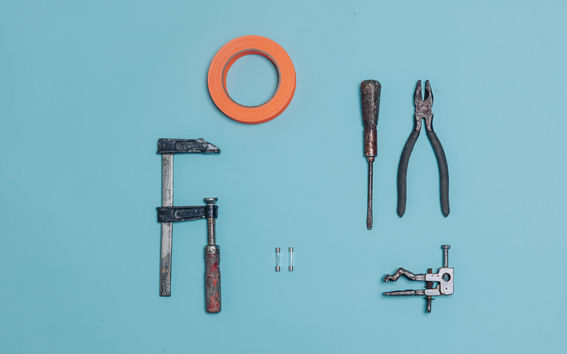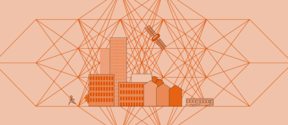Funding by the Academy of Finland September call totals EUR 20.6 million

The total funding of EUR 20.6 million granted by the Academy of Finland in the September 2018 call brings 29 Academy projects, nine Academy Research Fellow and 17 Postdoctoral Researcher posts to Aalto University. The financial period starts on 1 September 2019. Academy projects are for four years, Academy Research Fellows have five-year periods and Postdoctoral Researchers three-year periods.
Projects supported by the Research Council for Biosciences, Health and the Environment investigate, for example, the conversion of methane into electricity and remote sensing in the monitoring of plant diversity and develop methods to support environmental decision-making.
Projects supported by the Research Council for Culture and Society focus on, for example, collaborative design and brain activity in conflict as well as in managing high cognitive loads. The research also focuses on predicting returns of assets, decision-making in investment operations, incentives, the meanings of the location of companies and the development of a quantum computer from a business perspective.
Projects supported by the Academy of Finland's Research Council for Natural Sciences and Engineering concern for example road quality measurement, radio signals in urban buildings, carbon nanostructures and fusion energy.
‘We are delighted to see so many early career researchers receiving Postdoctoral Researcher funding. Similarly, Academy Research Fellow funding and Academy Project funding instruments are extremely competitive and the success of Aalto’s senior level professors is again a sign of high quality of our research. Many of the research projects are multidisciplinary in nature’, says Ella Bingham, Head of Research Services.
Academy Projects 1.9.2019–31.08.2023
- Aristides Gionis/Consortium MLDB: Model Management Systems: Machine learning meets Database Systems
- Miguel Caro: Towards accurate computational experimentation (COMPEX): machine-learning-driven simulation of nanocarbon synthesis
- Heidi Falkenbach: Outcomes of land policies in real estate markets
- Granqvist, Nina: From margins to mainstream – The emergence of quantum computing as a field of science and business
- Katsuyuki Haneda/Consortium STARCLUB: Signal-Transmissive-Walls with Embedded Passive Antennas for Radio-Connected Low-Energy Urban Buildings
- Jan Holmström: Direct Operations
- Hannu Hyyppä, Matti Vaaja/Consortium @Quality4Roads: Road Distress Mapping Combining Expertise of Sensors and Point Cloud Processing, Surveying and Road Engineering
- Eero Kontturi/Consortium ALGALEAF: CO2 capturing leaf-inspired biocatalyst from photosynthetic cells and lignocellulosic building blocks
- Kaie Kubjas: Algebraic geometry of hidden variable models in statistics
- Mikko Kurimo/Consortium DigiTala: Digital support for training and assessing second language speaking
- Anton Kuzyk/Consortium P-CAP: Photo-controlled active plasmonics
- Ilkka Laakso: Transcranial magnetic fingerprinting — tool for quantifying brain stimulation
- Juuso Liesiö/Consortium SYKE-AALTO-LUKE: Right tools for the right problems – Improving environmental planning with portfolio decision analysis
- Pauli Murto: Endogenous information in economic applications
- Pekka Peljo/Consortium BioFlow: Bioinspired organic redox flow batteries for sustainable and safe energy storage
- Rebecca Piekkari: The shifting meaning of firm location: From a physical setting to a perceptual sense of place
- Huajun Qin: Electro- and Optomagnonics in Hybrid Metamaterials
- Elias Rantapuska: Shortlisted investments – How heuristics affect investment decisions?
- Miina Rautiainen: Spectral Diversity Metrics for Boreal Forests [DIMEBO]
- Jussi Ryynänen/Consortium HATTRIC: Hybrid amplitude/time-based transmitter for future wireless communications
- Mika Salmi: Direct digital manufacturing in health care production and operations (DiDiMinH)
- Silvan Scheller: Biochemical interconversion of methan to CO2 and electricity (BioEle)
- Mika Sillanpää, Sebastiaan van Dijken/Consortium MAGNOMECHANICS: Microwave optomechanics with magnons
- Arno Solin/Consortium SHADE: Shallow models meet deep vision
- Rolf Stenberg: Efficient finite element methods in continuum mechanics
- Luc St-Pierre: Micro-architectured materials for high toughness
- Otto Toivanen/Consortium Comp-pro Health: Competition and provider incentives in health care markets
- Jaana Vapaavuori: Super-stretchable functionalized materials and fibers for third generation wearable technology
- Timo Vuori: A practice perspective on the use of artificial intelligence tools in organizations
Academy Research Fellows 1.9.2019–31.8.2024
- Muhammad Imran Asghar: Leading-edge next generation fuel cell devices
- Andrea Botero Cabrera: From the lab and the studio, to the garden, the forests and back
- Petri Jylhä: Which factors really predict asset return?
- Jonathan Levy: Supporting Pro-social Change in an Era of Intergroup Tensions: A Multidisciplinary and Global Approach
- Emilia Peltola: Carbon Interface Connecting Living and Artificial Worlds CICLAW
- Bo Peng: Design and self-assembly of anisotropic particles for advanced colloidal structures and materials
- Juha Salmitaival: Bringing real-life to attention (research): Towards integrative and transferrable neurocognitive model of attention deficit hyperactivity disorder
- Kathrin Sele: Algorithmic Routines – Tracing the Sociomaterial and Temporal Nature of Organizing in the Age of Digitization
- Antti Snicker: Fast and furious of fusion plasmas
Postdoctoral Researchers 1.9.2019–31.8.2022
- Ali Afzalifar: Electric Field; an Active Method to Control Phase Change
- Shashank Arora: 3D-Printed Ultra-thick Batteries with enhanced cycle Life and In-built Cooling system (PUBLIC)
- Javier Cuerda: Spatio-Temporal Theory for Tunable Nanoscale Coherent light source (SPATUNANO)
- Pasquale Gallo: Multiscale models for the fatigue assessment of engineering applications: experimental investigation of fatigue mechanisms at micro and nanoscale
- Julie-Anne Gandier: Class I HFB proteins as a modular platform for “smart” nanostructured materials
- Andrey Generalov: High-performance room-temperature graphene based THz heterodyne detectors
- Amber Geurts: Contested Futures: Framing the Future of Emerging Technologies
- Robert Hartmann: Interfacial modification of mineral surfaces using bio-colloids derived from sustainable resources with respect to froth flotation
- Florian Kohl: Lattice Polytopes in Algebra, Combinatorics, and Mathematical Physics
- Yu-Chang Liu: CEVALOR – Cellular factories for the valorization of biorefinery chemicals
- Matti Nelimarkka: Interfaces for deliberation and deliberation of interfaces: towards political human-computer interaction
- Tuomas Mutanen: Probing human-awareness with novel high-resolution multi-locus brain-stimulation technique
- Elina Niinivaara: Tuning cellulose nanocrystal/water interactions with designer cello-oligosaccharides
- Zhengze Pan: Cathode Kinetics and Materials for High Temperature Lithium-Oxygen Batteries
- Mohammad Tavakkoli: Advanced Nanocatalysts for Electrochemical Energy Devices (ANCED)
- Jonna Tiira: Low loss III-V semiconductors for electroluminescent cooling (LOST)
- Joni Virta: Dimension Reduction for Tensorial Data
Read more on the funded projects:
Natural Sciences and Engineering
- https://www.aalto.fi/en/news/20-new-academy-projects-to-aalto, June 12 2019
- https://www.aalto.fi/en/news/funding-for-four-new-academy-research-fellow-and-14-postdoctoral-researcher-posts, May 7 2019
Biosciences, Health and the Environment
- https://www.aalto.fi/en/news/nine-new-academy-projects-to-aalto, 27 May 2019
- https://www.aalto.fi/en/news/five-new-academy-research-fellow-and-three-postdoctoral-researcher-posts, 29 April 2019
Culture and Society
Read more news

Get to know us: Associate Professor Maria Sammalkorpi
Sammalkorpi received her doctorate from Helsinki University of Technology 2004. After her defence, she has worked as a researcher at the Universities of Princeton, Yale and Aalto.
Aalto computer scientists in ICML 2024
Computer scientists in ICML 2024
HRH Princess Maha Chakri Sirindhorn of Thailand visited Aalto University
During the visit, HRH and her delegation met with Aalto students and explored various activities.